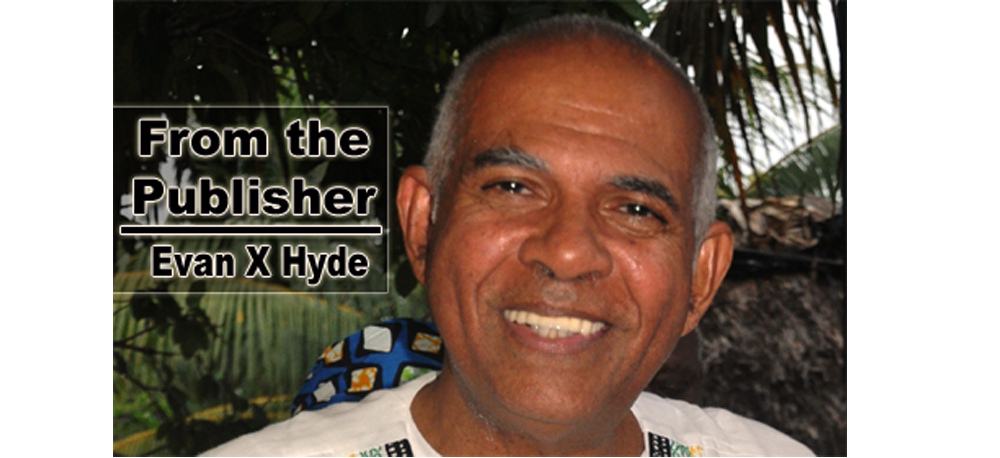An important aspect of the recent turmoil in Belize’s sugar industry was the fact that Belmopan – and Belize City-based trade unions, such as the National Trade Union Congress of Belize (NTUCB) and the Belize National Teachers Union (BNTU), threw major solidarity behind the Belize Sugar Cane Farmers Association (BSCFA).
During the administrations of the United Democratic Party (UDP) between 2008 and 2020, the original BSCFA had been successfully splintered by Belize Sugar Industries/American Sugar Refining (BSI/ASR), who own and run the mill at Tower Hill which grinds the sugar cane grown by BSCFA and the smaller associations which had yielded to BSI/ASR pressure.
The Industrial Revolution in Europe in the nineteenth century had spawned serious solidarity amongst factory workers as a class in European countries. Solidarity amongst workers was basically considered as the product of a philosophy called communism, which was atheistic and totally hostile to laissez-faire capitalism. European communist parties became so powerful that Roman Catholic Pope Leo XIII wrote a strong encyclical entitled De Rerum Novarum in 1891. The purpose of the Pope’s encyclical was to call for social justice in the factories of a kind which would prevent the masses of workers from abandoning faith in God and in the Church.
The leading writers/theorists of the communist philosophy were Karl Marx and Friedrich Engels. That philosophy is also referred to historically as Marxism-Leninism. Marx and Engels believed that the first countries where the communist philosophy would overpower capitalism would be the industrialized countries of Europe, where working conditions in the factories were horrible and dangerous to life and limb. In fact, however, the much more rural Eastern European nation of Russia became the world’s first communist country after the Russian Revolution of 1917.
At that time, the world was a much larger place insofar as communications and travel were concerned. Still, the success of the Russian Revolution did have a significant effect on Mexico, which in 1917 was in the middle of the Mexican Revolution, which had begun in 1910 with the intention of removing the dictator Porfirio Diaz from power.
Although Adolf Hitler’s Nazi Party in Germany is often referred to as a national socialist party, and socialism is considered a milder form of communism by scholars, Hitler’s Nazis hated communism, and after initiating World War II in 1939, Hitler invaded Josef Stalin’s communist Russia in 1941. Hitler, as France’s Napoleon Bonaparte before him in 1812, was defeated by the Russian winter.
After World War II ended in 1945, the victors were considered Winston Churchill’s United Kingdom, Franklin Delano Roosevelt’s United States of America, and Josef Stalin’s Russia (Union of Soviet Socialist Republics).
Early on after the war ended, Churchill began to view Russia as a serious danger potentially, and he coined the term “iron curtain” to refer to the conditions surrounding the people under Stalin’s rule. Remember, Germany was split in two after World War II: Russia ruling East Germany and the U.S being a powerful ally of West Germany.
Franklin Delano Roosevelt had stabilized the U.S. after the 1929 Great Depression with a program historians refer to as the “New Deal,” which essentially created and protected benefits for the working classes, but was definitely anti-communist.
What was called a “Cold War” began all over the world, wherein the Russians and the Americans were fighting for strategic military spaces and for natural resources. In our part of the world, for instance, if the Americans could successfully brand you as a “communist” leader, you would be in all kinds of trouble. Thus it was that the reformist Guatemalan president, Jacobo Arbenz, was run into exile by an American-supported propaganda and military campaign in 1954 led by Carlos Castillo Armas. Meanwhile, brutal dictators, such as Rafael Trujillo in the Dominican Republic, were literally getting away with murder because they preached anti-communism and were regional American allies.
In Belize, the early People’s Committee of the 1940s (which became the People’s United Party—PUP) was led by students of the SJC Jesuits who basically were practitioners of the philosophies proposed in Leo XIII’s encyclical. In Guyana, however, Cheddi Jagan was more aggressive, and the Americans branded him a communist. They watched the PUP leadership closely, so that when the Maximum PUP Leader, Rt. Hon. George Cadle Price, appeared to be falling under the influence of the young, left wing attorneys, Assad Shoman and Said Musa, in the late 1960s and early 1970s, the Americans were prepared to support political opposition to initiatives which to them smelled like communism.
In the late 1980s/early 1990s, it appeared that the United States had essentially won their war with Russia. But in 1949, China had been taken over by Mao Zedong-led communists, and China quickly became a world power, introducing in the 1970s an approach which somc scholars call “state communism.”
The point of this column is that the United States, the world’s premier power, looks at situations such as the recent turmoil in Belize’s sugar industry from a specific standpoint, and that standpoint is supportive of their investors who are doing business abroad. That standpoint is suspicious of cooperation amongst workers. The Bible warned us: those with more, get more; those with less, less.

